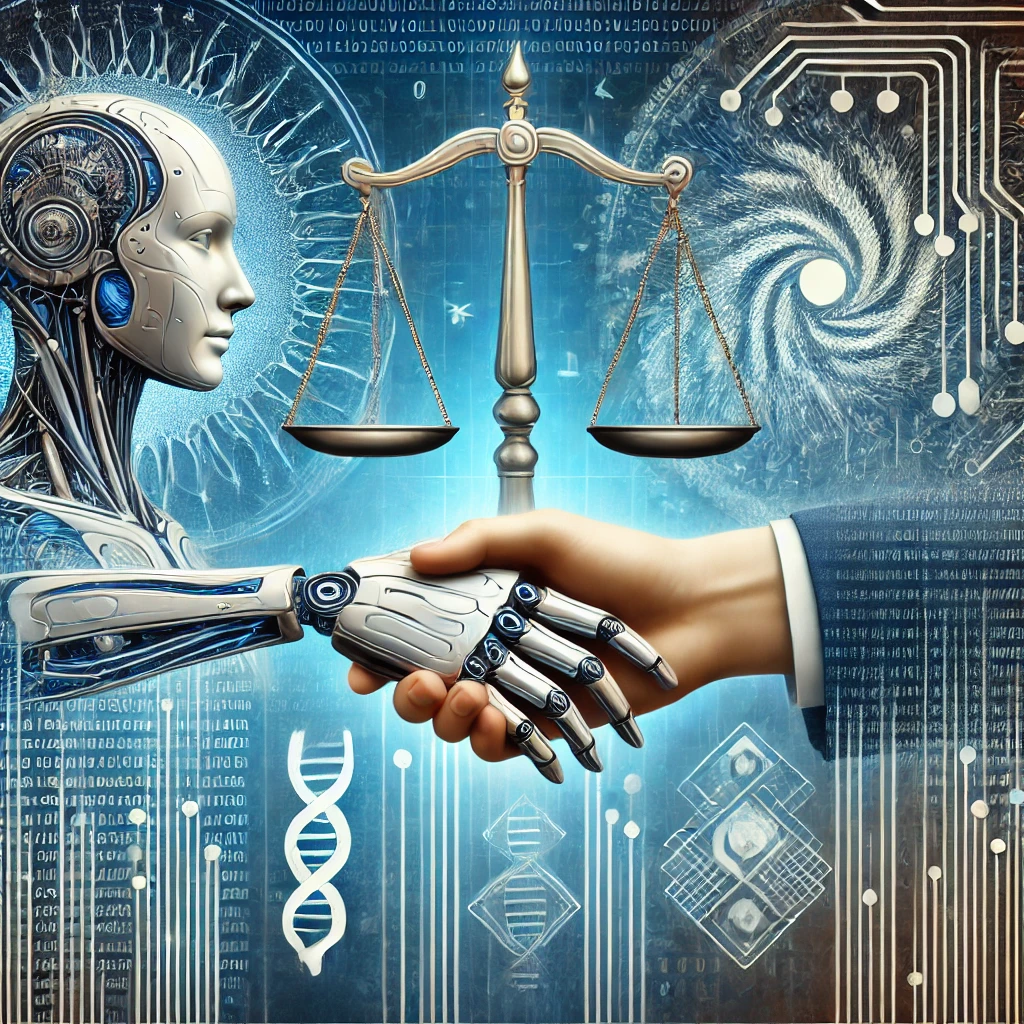The Ethics of Artificial Intelligence: Balancing Innovation and Responsibility
Artificial intelligence (AI) is no longer a science fiction concept; it has arrived and is changing our world at an unprecedented pace. From transforming sectors like healthcare and finance to offering great services, the influence of AI is tremendous. Yet, as we bask in its advancements, we’re also confronted with a Pandora’s box of ethical dilemmas. How will we use AI power without losing our values? Can we continue to break new grounds in innovation while we insist on being an ethically committed one? These questions are not academic in nature; they lie at the heart of our collective future.
This article explores the ethical minefield of AI, considering the delicate balance between innovation and accountability.
Bias and Fairness
Sharat Potharaju, Founder of Uniqode said, Bias is one of the most critical AI ethical issues. AI systems would only be as unbiased as the data they are trained from, and such data sometimes perpetuates existing biases. For example, facial recognition technology has been proven flawed in misidentifying humans, especially those with darker skin tones and women. This does not only address technological failure but also evokes critical ethical and social issues.
Strategies to Address
- Diverse Data Sets: The datasets utilized should reflect the diversity that occurs in the actual world. This entails aggressively seeking and including data from marginalized groups.
- Bias Audits: Regularly auditing AI systems for bias can help identify and reduce biases. This includes analyzing outcomes for different demographic groups and making necessary adjustments.
- Inclusive Teams: Diverse and inclusive teams of developers and data scientists can be sources of different perspectives that critically help recognize and respond to biases. Ethical AI frameworks and guidelines focusing on fairness and non-discrimination will guide the development and deployment of AI systems.
Privacy and Data Protection
AI involves collecting and processing loads of personal data, which raises big privacy concerns. Data has to be collected and used ethically. Companies must have robust data protection in place and be transparent about how they use AI and personal data. Transparency builds trust and helps users understand how their data is being used, said by James Owen, Cofounder of Click Intelligence.
Strategies to Address
- Data Minimization: One of the key practices is data minimization, which means collecting only what is necessary for a specific purpose.
- Anonymization and Encryption: Anonymizing personal data and encrypting it during storage and transmission can protect user privacy.
- Consent and Control: Providing users with control over their data is another key aspect of ethical AI. This includes getting explicit consent for data collection, allowing users to access their data, and giving them the option to delete their data if they want.
- Compliance with Regulations: Companies also need to comply with data protection regulations such as the General Data Protection Regulation (GDPR) in the EU and the California Consumer Privacy Act (CCPA) in the US.
- Auditing and Accountability: Regular audits of AI systems must happen to ensure they meet privacy standards. Companies must have accountability frameworks in place with clear roles and responsibilities for data protection.
Accountability and Transparency
Jessica Shee, Tech Editor of M3datarecovery.com said, Accountability must be considered at the design level of an AI system. This way, developers and companies have a sense of accountability towards the outcome of their AI system. It prevents accidents and enhances user confidence in AI systems. For example, in the case of a self-driving car accident, there should be clear indications of who was held liable and under what conditions the accident occurred.
Strategies to Address
- Clear accountability frameworks: Establish clear accountability frameworks that identify who is responsible for which aspects of the AI system at every stage of development, implementation, and monitoring. This makes it easier to spot problems in their early stages and correct them quickly.
- Incident response plans: Organizations must have an incident response plan that enables them to respond quickly to any unforeseen effect of the AI system.
- Transparency in algorithms: AI algorithms must be transparent and explainable. In essence, this signifies that the AI system’s decision-making process must be traceable, enabling humans to meticulously analyze and comprehend how decisions are made.
Regulation and Policy
Governments and organizations recognize the need for regulations to govern AI development and usage. These regulations are key to ethical AI development and responsible usage.
Strategies to Address
- Ethical Principles: Ethical principles such as fairness, transparency, accountability, and privacy must be established.
- Compliance and Enforcement: Proper regulations need to have mechanisms for compliance and enforcement. This includes establishing regulatory bodies that oversee AI activities and ensuring that violations are addressed promptly.
- Impact Assessment: AI systems should be subject to thorough impact assessments before deployment. This involves assessing possible risks and incentives, as well as analyzing the social and ethical aspects of AI applications.
- Stakeholder Engagement: Balancing and effective regulations need to engage industry stakeholders, civil society, and the general public. An inclusive process ensures that there is proper consideration of all different types of perspectives.
- Continuous Monitoring and Evaluation: AI regulation should not be static in nature. It requires continuous monitoring and evaluation of AI systems and their impact in adjusting regulations to changing challenges and technological advancement.
Case Studies #1: Amazon’s Facial Recognition Technology
Several case studies highlight the ethical dilemmas associated with AI.
Background: Amazon developed a facial recognition technology called Rekognition, which was marketed to law enforcement agencies for identifying suspects. However, it soon became apparent that the technology had significant biases.
Incident: In 2018, the American Civil Liberties Union (ACLU) tested recognition by comparing it to a database of 535 members of Congress. The system shocked officials by incorrectly matching 28 members, misidentifying people of color at an alarming rate. It has raised serious concerns over the potential for racial bias and wrongful arrests.
Response: Following public outcry and pressure from civil rights groups, Amazon declared a one-year moratorium on the use of recognition by police in June 2020. It was a part of the bigger movement for tech companies to reconsider the ethical implications of facial recognition technology.
Impact: The incident raised a serious concern of testing and transparency of an AI system, particularly within law enforcement. It further reiterated the need to take into consideration the social implications of releasing these technologies.
Case Study #2: Detroit Police and Robert Williams
Background: Based on a false facial recognition match, in January 2020, Detroit police arrested Robert Williams. He was arrested in the presence of his wife and daughters.
Incident: The basis of arrest was a low-resolution surveillance video from a 2018 shoplifting incident from a Detroit high-end store, Shinola. The police’s face recognition system identified the man in the footage based on his driver’s license photo. Williams said he wasn’t the guy in the video, but they arrested him.
Result: The ACLU brought the case on behalf of Williams, citing violations under the Fourth Amendment and Michigan civil rights. The case sought damages, transparency, and an injunction to stop the Detroit Police from using facial recognition.
The Path Forward
Balancing innovation with responsibility is the key for ethical development and use of AI. Addressing bias, ensuring privacy, and holding people accountable and providing human oversight can help harness the power of AI while minimizing its negative impacts. As AI is an evolving technology, it needs vigilance and strict adherence to ethics.




